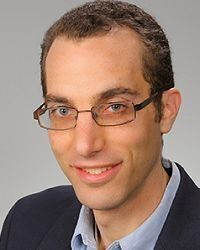
Robert Kopp | Universities in the Climate Crisis: Lessons From the Land-grant Experience
Abstract: Established amidst the bloodshed of the Civil War, land-grant universities, together with the associated agricultural experiment stations and cooperative extension services, have played a crucial role in democratizing scientific knowledge and addressing intertwined educational, environmental, economic, and democratic challenges within the USA. Indeed, they have arguably pioneered the idea of “usable science.” Today, the climate crisis and the urgent challenges of the Anthropocene demand a more robust relationship between scientific research and on-the-ground action, strong networks sharing local lessons globally, and channels for injecting global, long-term perspectives into the noise of short-termism. We discuss insights into these challenges from the historical land-grant experience and examples of ongoing work in climate services and climate action at Rutgers University.
Bio: Robert Kopp is a climate scientist who serves at Rutgers University as a Professor in the Department of Earth & Planetary Sciences and as Co-Director of the University Office of Climate Action. He also directs the Megalopolitan Coastal Transformation Hub, a National Science Foundation-funded consortium that advances coastal climate adaptation and the scientific understanding of natural and human coastal climate dynamics. He is also a director of the Climate Impact Lab, a multi-institutional collaboration of more than two dozen economists, data scientists, climate scientists, and policy experts, working to bring Big Data approaches to the assessment of the economic risks of climate change.
This event is presented as part of the 2023 Perspectives on the Climate Change Challenge Seminar Series:
Most Mondays, Spring Semester 2023, 2:45-4:00pm(via Zoom OR In person in 155 Olin Hall)This university-wide seminar series is open to the public, and provides important views on the critical issue of climate change, drawing from many perspectives and disciplines. Experts from Cornell University and beyond present an overview of the science of climate change and climate change models, the implications for agriculture, ecosystems, and food systems, and provide important economic, ethical, and policy insights on the issue. The seminar is being organized and sponsored by the Department of Biological and Environmental Engineering and Cornell Atkinson Center for Sustainability.